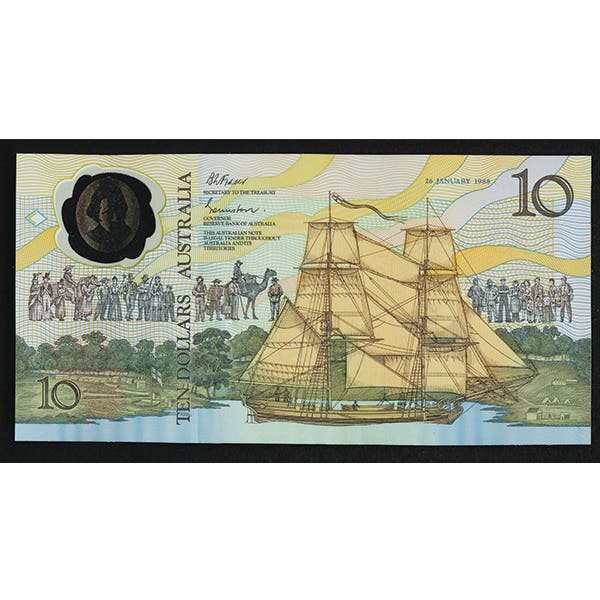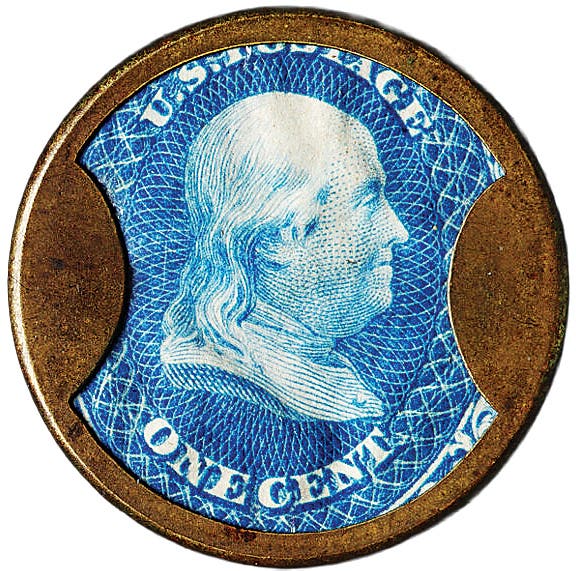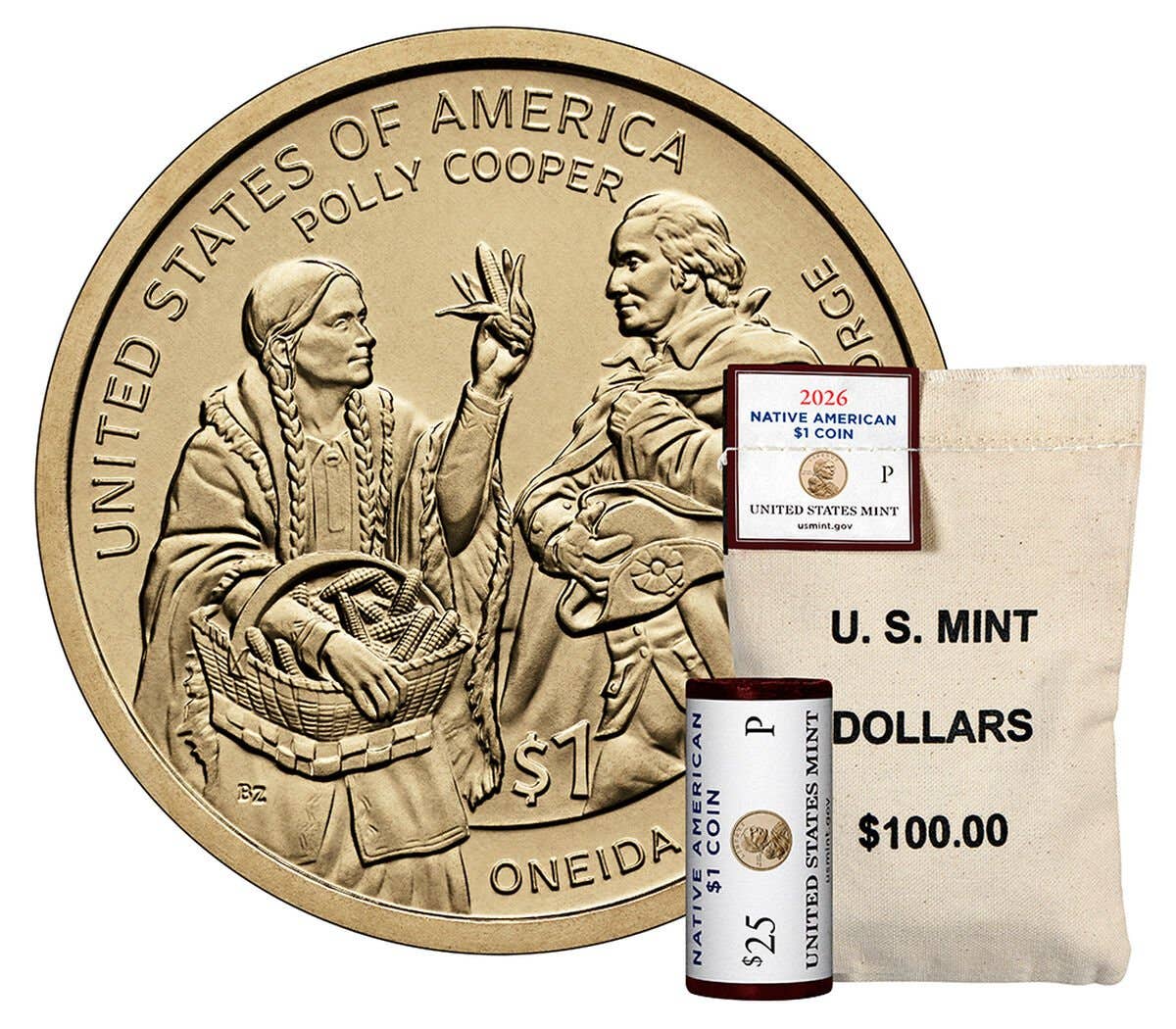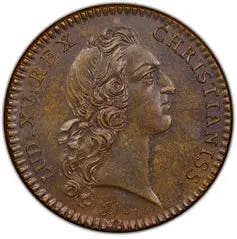This week’s letters (08/14/12)
When a dealer leaves a coin show early, a message is sent to other dealers that maybe they should leave early, too. Dealers who are experiencing slow business get impatient and start looking for a reason to leave.
Dealers leaving shows early send bad message
When a dealer leaves a coin show early, a message is sent to other dealers that maybe they should leave early, too. Dealers who are experiencing slow business get impatient and start looking for a reason to leave.
At some shows, the majority of the dealers are gone by 2 p.m., two full hours before the scheduled closing. Dealers who had not planned on leaving early do so because they saw others leave.
When the public sees dealers leaving, the customers start thinking about leaving the show. If dealers are leaving, then maybe the show is over. One certainly does not want to get in the way of someone else who wants to leave.
When a dealer leaves early, the appearance to show organizers is that the show is a failure. Why would any dealer leave a successful show early?
What is the hallmark of a good business? Dependability. A good business has posted hours and is open during all of the business hours in order to conduct the most business possible.
A coin show that is unable to honor its business hours loses customers for future shows, just like a business with irregular hours.
One certainly can understand a dealer needing to leave early because of an emergency. But to routinely leave in the middle of the work day is unprofessional and may result in the loss of significant opportunities that often pop up at the end of a show.
Some coin shows routinely sell out the bourse. A bourse chairman would be wise not to rent a table to a dealer who habitually leaves early. Instead, sell it to someone else on your waiting list. In fact, it is better to leave a table empty than to sell to a dealer that leaves early.
In the case of the multi-day show, any dealer wanting to leave early should be required to leave an entire day early so that the table can be re-sold for the last day so that other dealers can fill up the empty space with additional merchandise.
Dealers who start packing up their merchandise before the posted show closing also send the message that the show is over and that they are no longer available to do business.
This has the same effect on the public as the dealer who leaves early.
Dealers, if you don’t want to stay open for the entire show, don’t rent a table. When coin club members donate hundred of hours of time to put on a show, it is downright rude to leave or pack up early, period.
Coin club members put on coin shows for the good of the hobby and provide dealers with an opportunity to make money.
The clubs deserve some consideration. Bourse fees don’t come close to compensating clubs for the time donated putting on a show.
Bruce R. Frohman
Modesto, Calif.
Sundays not worth the effort at coin shows
Sunday at a coin show is dead. You spend an extra night at a hotel and rarely sell or buy enough to cover the additional cost. FUN has solved the problem by ending the Summer FUN on Saturday, making Sunday optional for the Winter FUN. I suggest all coin shows follow this lead.
Richard Faath
Spring Hill Coins
Dealers have right to leave shows when they want
1. I pay for the table so it is my right to stay for as long or as short a time as I desire. If the show wants me to stay beyond what I am willing to, then pay me for the imposition. Either that or don’t sell me another table for the next show.
2. I have driven as much as 1,000 miles (one way) to a show. If there is little or no business, why should I stay? Like anybody else, I would like to go home and spend some time with my family. Staying one extra day costs me.
3. I have no great sympathy for those collectors who say that they can’t get to the show except on Sunday. They have the option to take a day of vacation so that they can go to the show. For some, Sunday is a religious day of observance, while others observe Friday. Do you propose making those people violate their religious beliefs just to cater to the person who refuses to take a day off?
4. Yes, I have also had a good show at the last minute. I kept records for the last two years and only once have I made my show in the last hour of the show, either by buying or selling. Based on those statistics, for me to stay past my normal time to leave, I would expect the show to reimburse my hourly expenses of $100 per hour for every hour they expect me to stay. Cash please, no checks.
Paul E. Garner
Waco, Texas
FUN votes on new policy for January convention
The board of Florida United Numismatists, Inc., has voted for a new policy beginning with our Jan. 10-13, 2013, 58th Annual FUN Convention in Orlando.
After our 2011 January convention, I mailed a survey to all the dealers who had tables, requesting their opinions on a variety of topics. One of the questions asked was which they preferred: (1) mandatory Sunday attendance with a penalty in future table locations for those who depart early, (2) eliminating Sundays from the show schedule, or (3) keeping Sunday on the agenda as an optional dealer participation day. The voting was actually split almost evenly for the three options. I went back to the FUN board with the results, and we are going to try option (3).
The ultimate FUN Board decision was based on several key factors. (1) We respect the choice of the dealers who wish to be home on Sunday to be with their families before going back to work on Monday. Many own coin shops and it’s a grueling schedule to work all week in a shop and attend coin shows on weekends.
(2) We also respect the limited attendance days for the public who work all week and may be able to attend only on Sunday. The dealers who stay on Sunday generally do quite a bit of business, and we didn’t want to take away their option to staff their tables and serve the public who attend.
Therefore, the logical choice was to keep Sundays open for the public, but make it optional for the dealers. All of our advertising in 2012 for the 2013 show lists Sunday as “an optional dealer participation day.”
We want the public to know there will be a scaled-down bourse floor on Sunday, but we still welcome them and hope they can attend. We anticipate an eager group of dealers ready to serve their numismatic needs.
I’m proud to work with the FUN Board of Directors. They are logical, as well as considerate of everyone’s schedules, thoughts and feelings on sensitive subjects such as this one. I’m confident we’ll have another hugely successful show in January 2013.
Cindy Wibker
FUN Convention Coordinator
Lake Monroe, Fla.
Extra expenses affect dealers’ decision to leave
I have been the bourse chairman for coin shows since 1995. Here are my thoughts:
1. Dealers pay money for tables and other expenses to attend a show. We don’t pay dealers to attend.
2. Dealers will stay at a show as long as there are customers. When customers stop coming, dealers will close up shop.
3. Most serious collectors will be at the show early before coins are picked over.
Most dealers are in the business to make money. Some travel long distances. Those who drive to a show want to do so in the daylight. An extra day’s hotel and food expenses may be the difference between breaking even or not.
I also set up at shows, and I follow the above “rules” in my own behavior.
Shane Cornell
Jenks, Okla.
Many factors contribute to dealers leaving early
Dave, we have both been around this industry/hobby for decades and this debate has raged on since I began attending shows in 1963.
There are several elements to this question: Did the promoter charge an admission or not? If he did not, then the attendee has no right of expectations as they did not pay a price for a set of certain expectations, nor did the promoter impose restrictions on dealers setting up. That should be explained in literature about the event.
If the promoter charges a fee for an express set of expectations, for example 100 dealers in coins and paper money of the world, then the promoter needs to provide a list of expectations for his dealers and convince them to adhere to them.
I have found many shows do not charge admission on the last day just because it would eliminate disappointment. Clearly defined expectations for dealers and collectors would go a long way to solving these issues.
One of my favorite, or most frustrating, times I encountered was at an ANA in Orlando some time back when the ANA demanded all dealers stay with booths manned until the public show was closed.
This time had been adjusted, allowing most attendees the opportunity to catch a late flight home, so nearly all were attempting to honor their wishes.
As I wandered the bourse floor a couple of hours before the show ended, who did I see packing up and dismantling their booth in the front and center of the room? The ANA sales department. When I questioned those in charge, I was told they had flights to catch. My reply was, “don’t we all.”
The facts are that we are in a hobby business and not a corporate environment. Whether we are professional dealers or hobby dealers, one of the main reasons we choose this business is because we can do it our way.
Show promoters are responsible for running their events and making and enforcing how they wish them to run. Many dealers attending shows are wholesale only and they would prefer being segregated from the public entirely for security reasons and because they are unwilling to share their time with the public.
I have suggested many times that larger shows be set up with consideration of available air walls at hotels and convention centers and simply closing off the section at the appropriate time so none miss those who have departed.
That’s my take as a dealer, collector and show promoter.
Lyn Knight
Overland Park, Kan.
Dealer’s strong opinion leads to coin kerfuffle
One more shot on the Mark Thurber kerfuffle.
He was the dealer who wrote expressing hostility toward customers who expect him to wait, at his table, for their arrival late in a show.
The issue isn’t really his right to leave early, for whatever reason. Nor the economics of setting up at shows. The problem is his negative attitude toward customers, so palpable in his letter.
Mr. Thurber doesn’t seem to understand that he is in a customer service business. That requires tolerating the existence of customers, and their foibles, and indeed making them feel you value their business. Which you should, because it’s what keeps the whole numismatic circus going.
Jean-Paul Sartre said, “Hell is other people.” However, we’re stuck living with them, and if you feel as Sartre did, that does make life Hell. I happen to love the human species, and that makes life a lot more rewarding. Including the coin business.
Frank S. Robinson
Albany, N.Y.
Buyers and sellers need to actively eliminate fakes
This letter is regarding your article in the online edition about fakes.
It takes two people to sell a fake coin, the seller, and the buyer. Take one person out of the transaction and there would be no more sales of fake coins.
Those people who buy fake coins don’t do anything to protect themselves.
Would you buy a used Rolex watch from a total stranger? No? Why? Because it could be a fake.
Would you buy a used diamond ring from a total stranger? No? Why? Because it could be a fake.
Would you buy a raw used coin from a total stranger? Yes? Why? Because it looked OK and the price was right and the seller was friendly.
We in the numismatic hobby are fortunate to collect items that are small enough to be readily authenticated by grading services.
If we all stuck to buying graded coins, the fakes would have no demand and would disappear from the marketplace. You can’t have sympathy for someone who shoots himself in the foot because he wanted to save a few bucks.
Peter Glassman
Schaumburg, Ill.
1901-S Barber quarter was not the lowest minted
In the July 31 issue, Ginger Rapsus says of the 1901-S Barber quarter, “Only 72,664 were minted, by far the lowest total for any date in the series.” Yet, according to the Red Book, the 1913-S had a mintage of 40,000, almost half that of the 1901-S. What am I missing?
Jerry Jones
Holts Summit, Mo.
1913-S lowest mint total for Barber quarter series
In the article “Barbers Offer Good Opportunity,” the author states that the mintage for the 1901-S quarter is “by far the lowest total for any date in the series.”
This statement incorrect as the mintage of the 1913-S is by far lower than 72,664 for the 1901-S at 40,000 coins. The 1913-S Barber quarter is the lowest mintage regular issue coin of the 20th century, I believe.
Kevin Timmons
Winthrop Harbor, Ill.
Editor’s note: Good catch.
Greater measures needed to protect from counterfeits
The current push to pass greater protections against counterfeit coins is a noble one.
We all want to protect our hobby and deal in the marketplace with a reasonable assurance we are actually getting what we think we are buying. On the surface, this is worthy of support by all of us. But, and this is a big but, we are unfortunately dealing with Congress, one of the more inept institutions in our government.
Everything Congress does is subject to The Law of Unintended Consequences. What appears to be beneficial often does not turn out that way, either in the legislation itself or in the regulatory phase after it becomes law.
Have any of the bill’s advocates deeply examined H.R. 597 for those unintended consequences? Murphy’s Law is always relevant, “Whatever can go wrong, will go wrong.” I just want to know that somebody has looked at the downside and has protected against it.
It is the little stuff that has the potential to hurt us badly. It would be a shame to make things worse than if nothing were done.
Bob Fritsch
Nashua, N.H.
Shows should take steps to stop dealers leaving early
This letter is regarding Mr. Parson’s Viewpoint in the July 17 issue of Numismatic News.
Another step that could be taken by show organizers would be to develop a list of all vendors who packed up and left early. The next time they asked for vendors for an upcoming show, any applicants that were on the “Left Early” list would be refused acceptance to the upcoming show.
If this created a small number of previous vendors to choose from, then offer a 1/2 price discount on any new vendor that might apply. As a reward to the previous vendors who did not pack up and leave early, their acceptance for the upcoming show should be reward enough.
My wife and I sell our products at the Olympia Farmer’s Market four days a week from 10 a.m. to 3 p.m. We have days where the number of folks in the market after 2 p.m. dwindles down to only the vendors left in their booths.
We would never pack up and leave before the 3 o’clock bell due to lack of attendees, nor would any other vendor leave early either. We do discuss this among ourselves when it’s slack but we stay on till 3 p.m.
I am sure show organizers can come up with something to get rid of the bad apples that pack up and leave early. I feel the same way as Mr. Parsons and the Blockers do. I would much rather visit a show and have a floor full of vendors to talk with and purchase from than a half full auditorium.
Jim Glick
Olympia, Wash.
EBay not effective at removing counterfeits
After reading the article “Battle against fakes” by Debbie Bradley in the July 24 issue, I immediately emailed my Congressman and requested he become a co-sponsor of H.R. 5977.
Somewhere in the article, it is written that “... eBay has cracked down on copies and replicas, no longer allowing them to be sold ...”
EBay has reported they will not allow copies and replicas to be sold on their website, but it is absolutely not happening in their numismatic category. Since their so-called policy began, I have regularly reported copies and replicas to eBay and not a single one has been taken down. But about 50 percent are taken down when I contact the seller.
EBay is way too much in love with their profits and will not take down anything that will effect their bottom line, no matter how it will affect their customers. It is still “Buyer Beware” on eBay.
Howard A. Daniel III
Dunn Loring, Va.
Seller clarifies two terms used in classified ads
Dan Sowards posed the question of using average circulated and full dates in NN ads. I use those terms in many of my ads. My meaning of average circulated is the lowest grade a coin can get and still be readable. Just above cull.
99 percent of the coins I send are much better and this keeps customers happy and coming back. Using strict grades causes nothing but disappointment.
Full date should be self explanatory. Buffalo nickels and liberty quarters and halves are known to have worn dates. Full dates let’s the buyer know they will get a readable date. It is a challenge to keep customers happy in a small classified ad with no pictures, so these terms are invaluable in keeping it clear and simple.
Rita Cherner
LR Coins
Tempe, Ariz.
Collector unable to obtain Acadia quarters from bank
The article “Acadia quarter launched” in the July 17 issue of NN mentions the quarters were released into circulation by the Federal Reserve Banks on June 11. If that is the case why can’t collectors get them at the bank?
Ronald M. Starsky
Rochester, N.Y.
Editor’s note: There is no requirement that banks order new coins. Most banks simply order supplies from armored car companies for the least expense they can and that means they get what the companies have on hand whether new or circulated coins. This is one of the reasons why the Mint sells bags and rolls directly to collectors.









